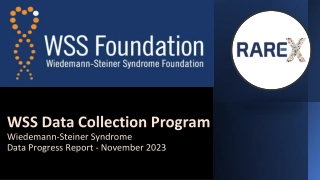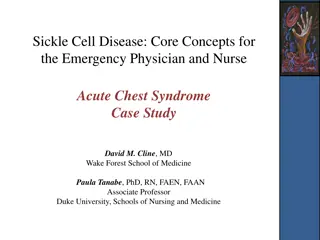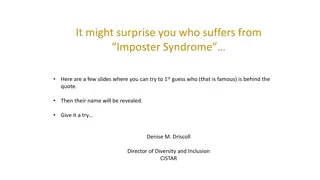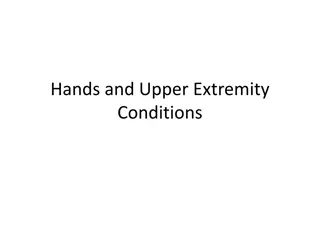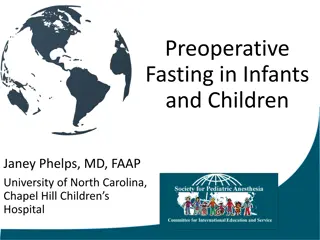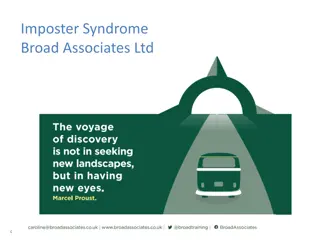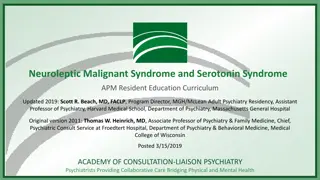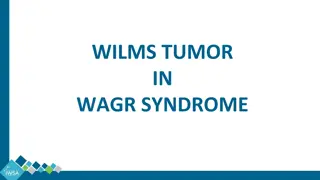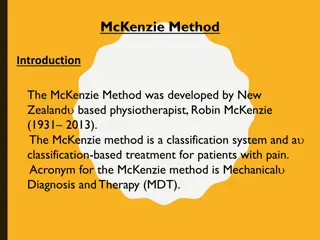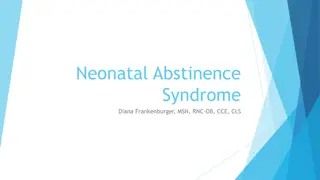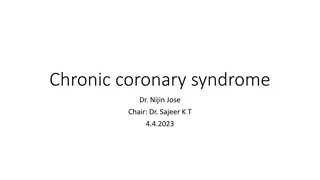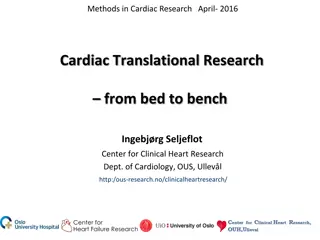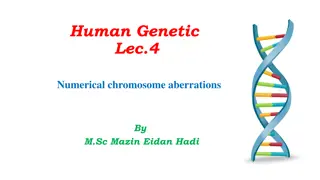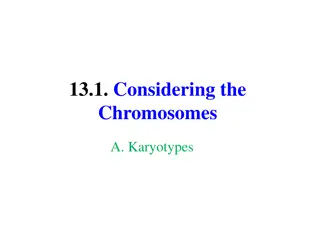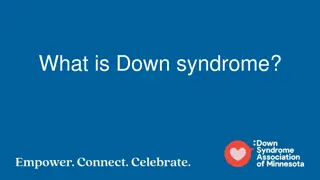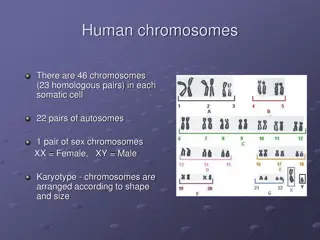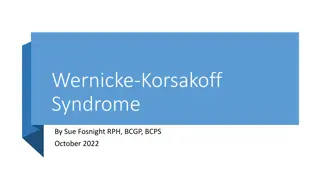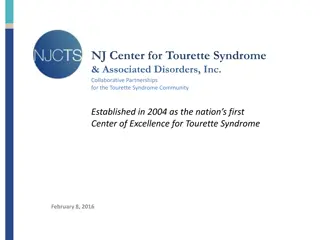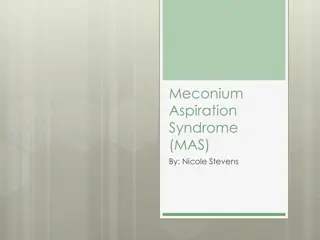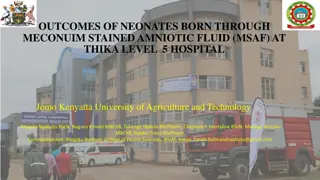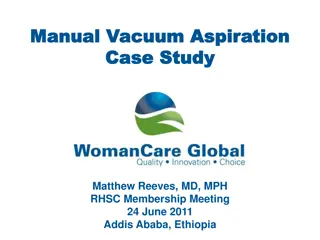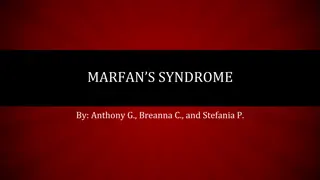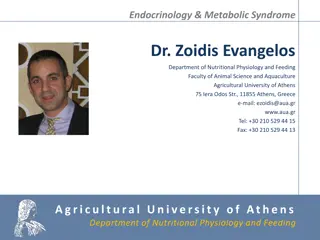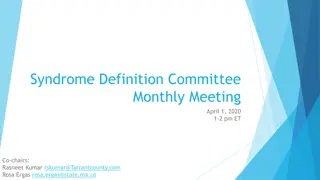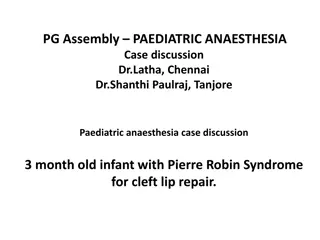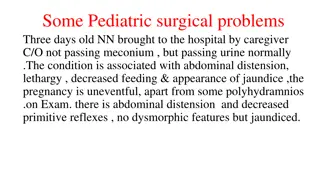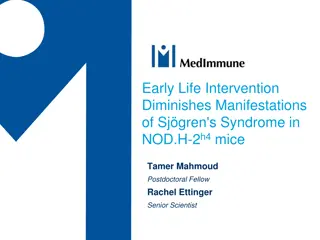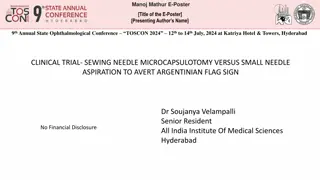Understanding Angelman Syndrome - Enhancing Lives Through Awareness
Angelman syndrome is a rare genetic condition impacting physical milestones and learning abilities. It affects around 1 in 15,000 individuals globally, with symptoms including speech difficulties, disrupted sleep, and seizures. Though there is no cure, increased awareness and research provide hope f
3 views • 20 slides
❤[PDF]⚡ Zee Zee Does It Anyway!: A Story about down Syndrome and Determination
\"COPY LINK HERE ; https:\/\/uyahsegoro.blogspot.com\/?book=B0BGNN7QZ6\n\n[READ DOWNLOAD] Zee Zee Does It Anyway!: A Story about down Syndrome and Determination | Zee Zee Does It Anyway is a Mom’ Choice Awards® Gold Recipient! PLUSReaders' Favorite gave this book a 5-star review!Have you e
1 views • 2 slides
Wiedemann-Steiner Syndrome Data Analysis and Progress Report - November 2023
This report provides insights into the enrollment, survey completion, KMT2A mutation types, reported issues, completion rates of relevant surveys, and symptoms in individuals diagnosed with Wiedemann-Steiner Syndrome. With a global perspective, the data highlights various domains of concern, offerin
1 views • 36 slides
Understanding Wolfram Syndrome: Symptoms and Implications
Wolfram Syndrome, also known as DIDMOAD, is a rare genetic disorder affecting about 1 in 160,000-770,000 people worldwide. It is characterized by the presence of Diabetes Insipidus, Diabetes Mellitus, Optic Atrophy, and Deafness. The primary genetic mutation in the WFS1 gene leads to various symptom
0 views • 22 slides
Managing Acute Chest Syndrome in Sickle Cell Disease
A case study of a 31-year-old male with sickle cell disease presenting in the emergency department with a pain crisis. The patient has a history of avascular necrosis, priapism, NSTEMI, cholecystectomy, and previous acute chest syndrome. Explore the patient's symptoms, past medical history, and reco
7 views • 19 slides
Famous Quotes on Imposter Syndrome - Can You Guess the Authors?
Discover famous quotes on imposter syndrome, try to guess the authors behind them, and learn how even well-known figures like Albert Einstein and Sonia Sotomayor have experienced feelings of inadequacy and self-doubt. Explore the prevalence of imposter syndrome and share your own experiences to crea
1 views • 7 slides
Understanding Thickened Liquids in Dysphagia Management
Thickened liquids are often recommended for residents with swallowing difficulties to prevent aspiration pneumonia. Recommendations are typically made by speech pathologists, with nursing sometimes adjusting based on availability of therapy. Aspiration pneumonia occurs when substances are inhaled in
2 views • 33 slides
Overview of Hands and Upper Extremity Conditions
This informative content covers various hand and upper extremity conditions including nerve innervation, deformities, splints, and syndromes such as carpal tunnel syndrome and cubital tunnel syndrome. It discusses key nerves like the ulnar, median, and radial, their functions, associated deformities
1 views • 40 slides
Preoperative Fasting in Infants and Children: Guidelines and History
Explore the evolution and rationale behind preoperative fasting guidelines in infants and children, including historical cases of aspiration during anesthesia. Learn about Mendelson Syndrome, recommendations for aspiration prevention, and the development of NPO orders over the years. Discover the im
0 views • 26 slides
Managing Imposter Syndrome: Techniques and Impact
Explore the various aspects of Imposter Syndrome, including symptoms, impact, and management techniques. Understand how attributing successes, negative self-talk, and feelings of fraudulence can affect one's perception of ability and self-worth. Learn strategies such as identifying feelings, reframi
0 views • 13 slides
Neuroleptic Malignant Syndrome and Serotonin Syndrome Overview
This educational material provides an in-depth understanding of Neuroleptic Malignant Syndrome (NMS) and Serotonin Syndrome (SS) including their background, pathophysiology, clinical characteristics, differential diagnosis, risk factors, and treatment approaches. It also explores the historical back
3 views • 53 slides
Understanding Wilms Tumor in WAGR Syndrome
WAGR syndrome is a rare genetic condition associated with Wilms Tumor, aniridia, and developmental delays. Wilms Tumor is a form of kidney cancer mostly affecting children and is linked to genetic disorders like WAGR syndrome. The risk of Wilms Tumor is higher in children with WAGR syndrome, with po
1 views • 14 slides
Motor Abilities in Williams Syndrome and Their Importance
Motor abilities play a crucial role in the developmental journey of individuals with Williams Syndrome. From simple reflex movements to fine and gross motor skills, these abilities impact daily living, academic achievements, and overall cognitive and physical growth. Research on motor skills in both
0 views • 20 slides
Understanding Karyotypes and Chromosomal Abnormalities
Karyotypes are photographic inventories of an individual's chromosomes, helping determine genetic sex and detect abnormalities. Common chromosomal conditions like Down syndrome, Klinefelter's syndrome, and Turner's syndrome are discussed, along with the impact of abnormal sex chromosomes on characte
0 views • 10 slides
Understanding the McKenzie Method for Pain Management
The McKenzie Method, developed by physiotherapist Robin McKenzie, is a classification-based system for treating pain. It involves assessment, treatment, and prevention steps, with an emphasis on centralizing symptoms and promoting pain reduction. The method categorizes pain into three syndromes - Po
2 views • 23 slides
Overcoming Imposter Syndrome: How to Outwit Your Inner Voice
Discover how to outsmart your inner critic and tackle imposter syndrome effectively. Learn about the common features of imposter syndrome and ways to take action to be braver and build integrity. Challenge perfectionism, self-doubt, and limiting beliefs to shape your own success story.
0 views • 4 slides
Understanding Neonatal Abstinence Syndrome (NAS) and Opioid Crisis Impact
Neonatal Abstinence Syndrome (NAS) is a condition where infants experience withdrawal symptoms from exposure to drugs in utero, with a significant impact seen in regions like southeastern Kentucky due to the opioid crisis. This syndrome manifests through various short and long-term effects, necessit
0 views • 30 slides
Understanding Chronic Coronary Syndrome: Causes, Symptoms, and Management
Chronic coronary syndrome involves a dynamic process of atherosclerotic plaque accumulation and functional alterations in coronary circulation. It includes various clinical scenarios such as stable angina, asymptomatic ischemia, prior myocardial infarction, and more. The condition can be modified by
0 views • 131 slides
Insights into Cardiac Research: Metabolic Syndrome and Acute Myocardial Infarction Studies
Explore the latest findings in cardiac research focusing on two critical clinical problems: Metabolic Syndrome (MetS) and Acute Myocardial Infarction. The studies involve human clinical data, blood sampling, adipose tissue biopsies, cell culture studies, thrombus aspiration, gene arrays, and regulat
0 views • 41 slides
Understanding Numerical Chromosome Aberrations in Humans
Numerical chromosome aberrations involve the gain or loss of whole chromosomes, impacting the genome size and potentially leading to genetic mutations. Nondisjunction, where chromosomes fail to separate properly during cell division, can result in aneuploidy - the presence of an extra or missing chr
0 views • 18 slides
Understanding Chromosomal Abnormalities and Syndromes
Human cells have 22 pairs of autosomes and one pair of sex chromosomes, totaling 46. Karyotypes help diagnose chromosomal abnormalities by aligning chromosomes in size order. Nondisjunction during meiosis can lead to abnormal chromosome numbers in gametes. Disorders like Down Syndrome, XYY Syndrome,
0 views • 30 slides
Understanding Down Syndrome: Causes, Effects, and Characteristics
Down syndrome, also known as Trisomy 21, is a genetic condition caused by the presence of an extra 21st chromosome. Discovered by Dr. John Langdon Down in 1866, this condition affects individuals in various ways, influencing their development and abilities. People with Down syndrome may learn skills
0 views • 10 slides
Understanding Chromosomal Disorders and Syndromes in Humans
Human chromosomes play a crucial role in determining genetic traits and health conditions. An extra copy of chromosome 21 leads to Down syndrome, while conditions like Klinefelter's syndrome, Turner's syndrome, Trisomy 13, 18, and 23 have distinct symptoms and implications. Trisomies result from abn
0 views • 20 slides
Understanding Down Syndrome: Types, Characteristics, and Impacts
Down syndrome is a genetic condition caused by an extra chromosome, typically chromosome 21. This leads to physical and cognitive challenges, with individuals exhibiting unique abilities. The syndrome presents with distinctive physical features, such as flattened face, almond-shaped eyes, and poor m
2 views • 14 slides
Assisting with Oral Feeding, Dysphagia Management, and Enteral Tube Feeding in Healthcare
This content covers essential aspects of assisting with oral feeding for individuals at risk for aspiration, managing dysphagia with specific recommendations and diet progression, and enteral tube feeding procedures and complications. It emphasizes safety, dignity, and independence in feeding practi
3 views • 12 slides
Assisting with Enteral Tube Feeding and Dysphagia Management
This content covers essential information on assisting with oral feeding for patients at risk of aspiration, managing dysphagia, diet progression, and enteral tube feeding procedures. It emphasizes safety, independence, and dignity in feeding practices. The content includes tips for preventing aspir
0 views • 12 slides
Understanding Wernicke-Korsakoff Syndrome: Overview and Clinical Considerations
Wernicke-Korsakoff Syndrome (WKS) comprises Wernicke's Encephalopathy (WE) and Korsakoff Syndrome. WE presents with altered mental status, ocular signs, and ataxia, while Korsakoff Syndrome manifests as amnesia and confabulations. Untreated WE can progress to Korsakoff Syndrome in about 80% of cases
0 views • 52 slides
Understanding Tourette Syndrome: Facts and Implications
Tourette Syndrome (TS) is a neurobiological disorder characterized by uncontrollable vocal and physical tics. Despite being underrepresented, it affects around 1 in 100 individuals. TS often goes undiagnosed, leading to misunderstanding and misrepresentation. The NJ Center for Tourette Syndrome prov
0 views • 13 slides
Understanding Meconium Aspiration Syndrome (MAS) in Newborns
Meconium Aspiration Syndrome (MAS) is a condition where a newborn aspirates meconium, the first substance discharged from the GI tract. This primarily affects term or post-term infants and can lead to airway obstruction, gas trapping, chemical pneumonitis, and PPHN. Risk factors include hypoxia and
0 views • 31 slides
Outcomes of Neonates Born Through Meconium-Stained Amniotic Fluid at Thika Level 5 Hospital
Incidence of meconium-stained amniotic fluid is significant in Kenya, leading to complications like Meconium Aspiration Syndrome and more. This study aims to determine outcomes of neonates born through MSAF at Thika Level 5 Hospital to improve neonatal care and reduce related morbidities and mortali
0 views • 9 slides
Global Strategies for Improving Access to Manual Vacuum Aspiration (MVA) Services
Explore the global impact and product line of Manual Vacuum Aspiration (MVA) devices. Learn about the global supply strategy, channel management strategies, and a case study highlighting the critical issue of MVA stock-outs in Zimbabwe, emphasizing the need for sustainable solutions.
0 views • 11 slides
Understanding Marfan Syndrome: Causes, Symptoms, and Effects
Marfan Syndrome is a genetic disorder affecting connective tissue, leading to various physical manifestations such as long limbs, heart and eye issues, and more. This article explores the history, inheritance pattern, symptoms, effects, and diagnosis of Marfan Syndrome, shedding light on the challen
1 views • 13 slides
Dr. Zoidis Evangelos: Endocrinology & Metabolic Syndrome Expert at Agricultural University of Athens
Dr. Zoidis Evangelos is a distinguished professional in the field of endocrinology and metabolic syndrome, currently serving as a Lecturer at the Agricultural University of Athens. With a background in biochemistry and extensive research experience, his work focuses on nutritional physiology, molecu
0 views • 12 slides
Syndrome Definition Committee Monthly Meeting Overview
The Syndrome Definition Committee's monthly meeting will take place on April 1, 2020, from 1-2 pm ET. The agenda includes an overview of the previous call, discussions on new CCDD categories, CSTE Guidance Document updates, suicide-related syndrome definitions, ESSENCE coding tips, and more. Various
0 views • 10 slides
Paediatric Anaesthesia Case Discussion: Challenges of Anaesthetizing an Infant with Pierre Robin Syndrome
Pierre Robin Syndrome (PRS) presents challenges in paediatric anaesthesia, especially in infants undergoing procedures like cleft lip repair. PRS is characterized by micrognathia, glossoptosis, and respiratory distress. Other syndromes associated with cleft lip include Treacher Collins syndrome, Gol
0 views • 56 slides
Pediatric Surgical Problems Overview
A three-day-old infant presenting with not passing meconium, abdominal distension, lethargy, decreased feeding, and jaundice is evaluated for possible pediatric surgical issues. Conditions such as duodenal atresia, imperforate anus, and intussusception are discussed along with their diagnostic and m
0 views • 10 slides
Understanding Imposter Syndrome: Causes, Effects, and Overcoming Strategies
Imposter Syndrome is characterized by feelings of inadequacy despite evidence of success, chronic self-doubt, and fear of being exposed as a fraud. It affects individuals' work performance, leads to avoidance of additional duties, assigns success to external factors, and can result in burnout. Howev
0 views • 10 slides
Early Life Intervention Diminishes Sjögren's Syndrome Manifestations in Mice
Early life intervention has been shown to reduce the clinical manifestations of Sjögren's syndrome in NOD.H-2h4 mice, which mimic key features of the human autoimmune disease. The syndrome is characterized by salivary gland autoantibodies, ectopic lymphoid follicles, reduced salivary and tear flow,
0 views • 19 slides
Managing Intraoperative Floppy Iris Syndrome in Cataract Surgery
Effective management of intraoperative floppy iris syndrome in cataract surgery involves specific maneuvers such as reducing aspiration flow rate, using mechanical iris expansion devices, and avoiding large or posterior incisions. This condition is characterized by progressive pupil constriction, ir
0 views • 6 slides
Clinical Trial: Sewing Needle Microcapsulotomy vs. Small Needle Aspiration to Avert Argentinian Flag Sign at TOSCON 2024
This e-poster presentation discusses a clinical trial conducted at the 9th Annual State Ophthalmological Conference (TOSCON) in 2024 regarding the comparison of two techniques - Sewing Needle Microcapsulotomy and Small Needle Aspiration - to prevent the Argentinian Flag Sign during cataract surgery.
0 views • 7 slides

![❤[PDF]⚡ Zee Zee Does It Anyway!: A Story about down Syndrome and Determination](/thumb/20462/pdf-zee-zee-does-it-anyway-a-story-about-down-syndrome-and-determination.jpg)
